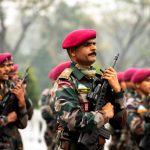For defence aspirants preparing for the SSB (Services Selection Board) interview, establishing a structured daily routine is not merely beneficial; it is essential. A well-crafted routine that encompasses physical training, psychological test practice, current affairs study, and personal well-being can significantly impact candidates’ readiness for the selection process. The SSB assessment aims to gauge candidates’ Officer-Like Qualities (OLQs) through various tests over a five-day span, making systematic preparation and time management crucial for success.
The significance of a daily routine extends beyond mere preparation. It cultivates essential skills, instills discipline, and builds confidence while allowing candidates to balance the various aspects of preparation effectively. This article delves into creating an ideal daily routine for SSB interview preparation, reflecting on its importance, the activities involved, and the benefits that come with it.
Historical Context of SSB Preparation
The SSB interview process has evolved significantly since its inception in the early 20th century, alongside the changing dynamics of warfare and defence needs. Initially, selection procedures were rudimentary, focused mainly on physical prowess. However, as modern warfare evolved, the need for strategic thinkers, leaders, and adaptable individuals became apparent.
Today, the SSB interviews are highly structured, involving psychological tests, group discussions, and individual assessments designed to evaluate candidates holistically. Incorporating a well-planned daily routine is now considered paramount to pass the rigorous selection processes that reflect the demands of contemporary defence roles. Candidates must not only excel in physical tasks but also demonstrate cognitive abilities, teamwork, and emotional intelligence.
Establishing an Ideal Daily Routine
A daily routine that balances all key preparation elements helps candidates develop a well-rounded personality, essential for success in the SSB interview. Below is a detailed breakdown of an effective daily routine for defence aspirants:
Early Morning (5:00–6:00 AM)
1. Wake Up & Hydration:
Starting the day early, ideally around 5:00–5:30 AM, is crucial. Upon waking, candidates should hydrate their bodies—drinking water or a light beverage can kick-start metabolism and increase alertness.
2. Mental Clarity Activities:
Engaging in light stretching, yoga, or meditation for about 5–10 minutes enhances mental clarity and focus, setting a positive tone for the day. These activities reduce anxiety and promote mindfulness, which can be particularly beneficial during stressful interview scenarios.
Physical Exercise & Fitness Training (6:00–7:00 AM)
Physical Workouts:
Candidates should engage in 30–45 minutes of aerobic workouts, such as running, cycling, push-ups, and squats. These exercises improve stamina, endurance, and overall fitness necessary for the GTO (Group Testing Officer) tasks, individual obstacles, and other physical assessments during the SSB.
Cool Down and Stretching:
Cooling down through stretching or yoga helps improve flexibility, enhances recovery, and reduces injury risks, vital for maintaining ongoing physical training.
Breakfast & Personal Care (7:00–8:00 AM)
Nutritious Breakfast:
An energetic breakfast that includes proteins, carbohydrates, and healthy fats is essential for fuelling the body’s day-long preparation efforts. Foods such as eggs, whole-grain toast, fruits, and nuts are ideal choices.
Study Sessions (Morning to Afternoon)
Psychoilogical Test Practice:
Dedicated study time should be allocated to practice SSB psychological tests, including the Thematic Apperception Test (TAT), Word Association Test (WAT), Situation Reaction Test (SRT), and Self-Description Test (SDT). Engaging in these exercises increases familiarity and reduces anxiety during actual tests.
Current Affairs Study:
Staying informed about national and international events is crucial, with candidates advised to allocate 30–45 minutes daily for reading relevant newspapers or current affairs magazines. This knowledge serves as a foundation for discussions during the interview and exams.
General Academic Revision:
If candidates are also preparing for written examinations, dedicated time for revision should be included in their routine to maintain a balance between SSB preparation and academic achievements.
Afternoon Break & Hobbies
Mental Breaks:
After intense study sessions, it is crucial to take short breaks to avoid burnout. Engaging in social interactions with family or friends can provide emotional support and maintain mental well-being.
Pursuing Hobbies:
Engaging in hobbies or light activities contributes to a balanced personality, which is valued during SSB interviews. Activities like reading, music, or arts can rejuvenate the mind and enhance creativity.
Evening Preparation (5:00–8:00 PM)
Practical Group Tasks:
Evening sessions should be dedicated to practicing group discussions, Group Planning Exercises, and other GTO-related tasks to simulate real tests. Role-playing different scenarios encourages teamwork and helps candidates articulate their thoughts effectively.
Mock Interviews:
Arranging mock interviews with peers or mentors can significantly improve communication skills and boost confidence. Constructive feedback is key to refining responses and building a strong personal narrative.
Mindful Breaks:
Incorporating short meditation or walks during breaks serves to refresh the mind and recharge energies for the next round of study or practice.
Night (Post 8:00 PM)
Reflection and Planning:
Before concluding the day, candidates should take time to reflect on their learnings and accomplishments. Planning for the next day reinforces focus and intention for continued improvement.
Adequate Sleep:
Ensuring 7-8 hours of restful sleep is crucial for physical and mental recovery. A well-rested mind is more effective in retention and cognitive function the following day.
Key Points and Figures
- Physical Training: Recommendations suggest 30–45 minutes of daily exercise for optimal fitness levels geared towards SSB tasks.
- Current Affairs Study: Dedicating 30–45 minutes consistently helps candidates stay informed and relevant.
- Psychological Preparation: Engaging in daily exercises focusing on TAT, WAT, SRT, and SDT enhances performance and confidence in real scenarios.
- Breaks and Downtime: Short breaks of 10–15 minutes are essential for maintaining focus and avoiding mental fatigue.
Benefits of a Daily Routine
Establishing a disciplined daily routine conveys numerous benefits, particularly for defence aspirants:
- Self-Discipline: A structured routine fosters self-discipline and reinforces time management skills, both essential for success in demanding situations.
- Comprehensive Preparation: A balanced approach ensures candidates do not place undue emphasis on one area (physical or psychological) while neglecting others.
- Stress Reduction: Regular exercise and mindful practices contribute to lower stress levels, boosting candidates’ confidence during selection processes.
- Enhanced Social Skills: Group interactions and discussions cultivate teamwork, leadership, and social skills—qualities highly regarded in the armed forces.
Challenges and Solutions
While establishing a daily routine is beneficial, candidates may encounter certain challenges:
Time Management:
Balancing SSB preparation with board or NDA exams can lead to increased stress. Using planners or digital tools for effective task management can alleviate this pressure.
Stress and Anxiety:
Mindfulness practices, regular physical exercise, and scheduled short breaks can greatly mitigate the impacts of stress and anxiety.
Information Overload:
Staying updated on current affairs requires allocation of fixed times for dedicated news consumption rather than sporadic checks, helping maintain focus and minimize distractions.
Future Trends and Predictions
As education and technology continue to evolve, the approach to SSB preparation is likely to undergo transformations. Digital resources, online mock interviews, and AI-driven platforms are expected to play larger roles, providing candidates with enhanced tools for preparation and practice. This trend may lead to improved access to tailored training material, allowing aspirants to prepare more efficiently.
Moreover, an increasing emphasis on mental health and emotional intelligence will shape how candidates approach their routine and preparation methodologies. Integrating mental wellness into physical training and academic pursuits will foster a more well-rounded aspirant, catering to the modern demands of Defence forces.
Conclusion
In conclusion, adhering to a structured daily routine is imperative for defence aspirants preparing for the SSB interview. It cultivates essential qualities, ensures balanced preparation across physical, psychological, and academic arenas, and enhances overall confidence. By engaging in consistently determined preparation, candidates not only stand a greater chance of succeeding based on merit but position themselves to contribute meaningfully to the Indian Armed Forces as future leaders. Implementing these practices laid out here can help transform aspirants’ ambitions into reality—ensuring they are not merely candidates but exemplary representatives of officer-like qualities deserving of selection.
As you embark on your SSB preparation journey, consider refining your daily routine. Analyze what aspects require adjustment and commit to consistency. This preparation is not just a task—it’s a building block for a lifelong commitment to service and leadership in the defence realm.










